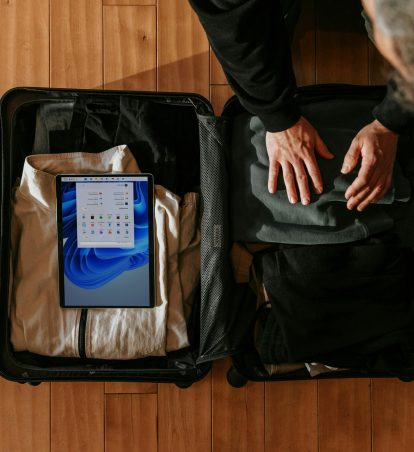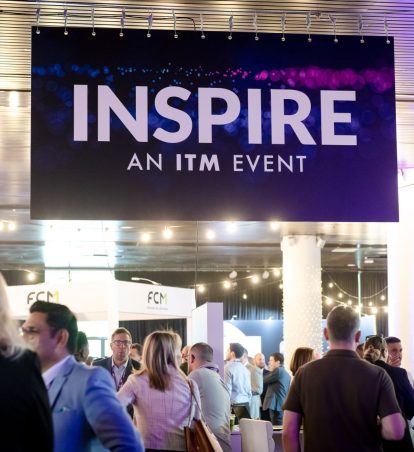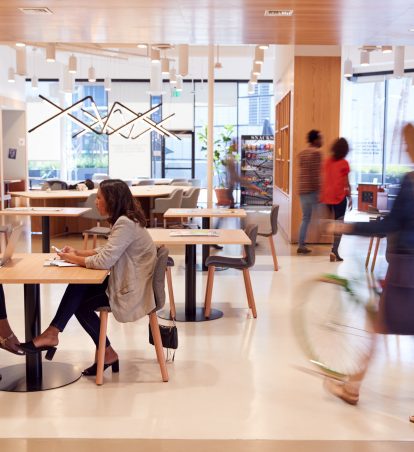Standards + Accreditation = Buyer Trust + Time(Exceptional Performance) = Buyer Confidence
A Travel and Mobility Supplier Guide To Earning Buyer Confidence
Have you ever considered all business travel buyers must evaluate when choosing a supplier?

From country entry and exit policies to continuous regulatory changes across the globe, quarantine, airline and hotel guidelines, insurance, communication, liability, sustainability, diversity… There is a plethora of complexity to assess.
And we can’t forget. Most suppliers are looking to differentiate their products and services, which further burdens the buyer as they have to monitor performance and compliance against a fluctuating set of standards. It is no wonder the pandemic has given rise to buyer confidence issues.
This dichotomy—the need to differentiate, set within the context of growing complexity—formed the basis for a wide-ranging panel discussion addressing buyer confidence.
The panel, led by Synergy’s VP of EMEA, Claire Barrie, brought together two industry thought leaders from the buyer side in Carol Fergus, Director for Global Travel, Meetings and Ground Transportation at Fidelity International, and Ray Kirby, Sr. Manager of the Talent Mobility program at Twitter. Representing supplier interest was none other than the esteemed Joan McCarthy Mack, Synergy’s VP of Global Supply Chain.

From how to balance traveler personalization with safety and security policy, to the importance of sustainability and diversity, to the major anticipated model shifts resulting from COVID-19, the panel provided the audience with a lot of food for thought. Yet, three clear and concise takeaways emerged—that, when aligned, outline a clear direction forward for travel suppliers to build trust and, ultimately, instill buyer confidence.
Safety is at the forefront of the rebuild
Buyer and traveler confidence will not be rebuilt overnight. Still, a great starting point is to properly and adequately address the immediate threats buyers face in the here-and-now: health and safety.
Suppliers must demonstrate and prove they are taking the appropriate steps to ensure guests not only feel safe but feel confident they are in control of their serviced accommodation. This is no longer about guest “duty of care.” It is now about a “duty to care.” The pandemic proved now is the time for consistent traveler health and safety global solutions—accredited standardized solutions at that.
Uniform, accredited standards will set up a system of checks and balances to ensure suppliers are held accountable for guest health and safety while ensuring corporate buyers can calibrate supplier performance against a set of unified, universal standards. Once accredited standards are achieved, all that is left is the proof; the proof suppliers are actually executing to those accredited standards.
Synergy developed SynergySMART, Synergy’s automated sanitization/cleanliness tracking web-based platform, to do just that. SynergySMART will track and measure Synergy’s comprehensive global supplier partner health and safety protocols offering an instant record of compliance to a set of universal standards across the globe.
Only with accredited standards and tools such as SynergySMART will buyers have the level playing field required to evaluate a supplier’s performance, realistically. Then and only then will buyers be in a place to trust such standards are being upheld across their travel and mobility programs. And in doing so, suppliers will achieve the critical first step in instilling buyer confidence.
The growth of the decentralised workforce will call for new, innovative suppliers solutions
The way we live and work has changed forever. And so will the way people travel and move for business.
Carol noted Fidelity is reevaluating the requirements for what they deem internal travel (i.e., business travel for internal needs, meetings and projects). Fidelity employees are encouraged to use technology solutions like Zoom when appropriate. But interestingly, Carol added, and Ray agreed, if employees do need to travel and meet the requirements to do so, those traveling employees will most likely stay for more extended periods. And as a result, travelers will require larger apartments with more “home-like” services and amenities.

This shift falls in line with the larger workforce trends emerging from the pandemic. The rise of decentralized workforces, virtual assignments, work from anywhere, homeschooling, and two-parent remote working, places a more significant need on suppliers to deliver a real “home away from home” experience for business travelers. As changing behaviors create a shift in accommodation requirements, the apartment will no longer just be a place to sleep-in, it will be a place to live in… To work in… To collaborate in… To raise a family in…
With this shift comes a need for not only additional space, fast WIFI, and ergonomic working conditions, but a need for an increasingly personalized experience that delivers everything a business traveler will need to work and live comfortably.
Learn about SynergyWork, and take a 3D virtual tour of Synergy’s adaptive remote work setups.
Furthermore, suppliers must be agile and versatile. As the workforce fully embraces Gen Z, suppliers must contend with four generations of business traveler demographics, all with unique and varying requirements. A 22-year-old, single cloud architect will want a very different housing experience, as opposed to, say… a 44-year-old, mother of two, director of operations. Lumping a traveler into one accommodation category simply based on where they work is a thing of the past.
Suppliers must continuously ask, “what’s next?” and quickly adapt their product design and service delivery to the workforce’s changing dynamics and demands. Only then will buyers feel confident in a supplier’s ability to seamlessly handle the varying requirements of the cloud architect versus the director of operations.

Now, more than ever, Suppliers and Buyers must seek transparency and collaborate to solve the needs of the business traveler
To rebuild, we must re-engage. Both suppliers and buyers have the same goal—to see a confident traveler. Therefore, it is more critical than ever suppliers and buyers re-engage with stakeholders, nurture existing relationships and work in unison to build travel programs that beckon travelers to feel safe and secure.
To achieve this, we must communicate and seek transparency between both parties. Travel buyers can help facilitate the safe return to travel by sharing expectations and requirements to suppliers about aspects including but not limited to changing traveler sentiment, flexibility needs, and minimum safety requirements. It is then up to suppliers to respond by adapting their products while also managing expectations.
Once suppliers prove—over time and with consistent performance—they can continually meet buyer and traveler needs, buyers will gain the confidence required to unlock further travel and mobility volume. Buyers and suppliers who build and maintain partnerships based on transparency, collaboration, and trust will win the day and achieve their mutual objectives—a safe, healthy, and happy business traveler.
Final words: a look ahead to tomorrow
Corporate travel has changed. There’s no doubt about it. From the introduction of hybrid working models to a greater focus on corporate social responsibility, travel buyers are shifting their policies in response to rapidly changing traveler and stakeholder behavior.
Both Carol and Ray noted sustainability and diversity and inclusion policies are more important than ever as buyers look to align their organization’s ethos with that of the supplier. And this isn’t merely about checking a box on a form or attaching diversity certificates to an RFP. Business travelers now demand, and rightfully so, congruency in values between the corporation they work for and the suppliers that the corporation hires.
As the general workforce becomes more mobile, agile, and diverse, it is imperative suppliers not simply solve for today but look ahead to tomorrow and build travel programs that represent their understanding of the traveler’s evolving needs. This level of understand will prove to the buyer, the supplier is listening and wants to be active partner in acheiveing their goals.
As a collective, we—serviced apartment providers—have a golden opportunity to embrace an evolution in traveler behavior and introduce the value of our product and services to a broader demographic. But first, we msut get it right with our core audience.
A monumental shift is afoot. Now is the time to act. To change. To go bigger and bolder. With the rollout of large-scale vaccination programs worldwide, it seems corporate travel may bounce back faster than predicted. Let’s use this time wisely to re-connect, re-engage, re-build and get ready for the return of business travel.
Standards plus accreditation will deliver trust. Trust plus time multiplied by exceptional performance is the key to buyer confidence.





